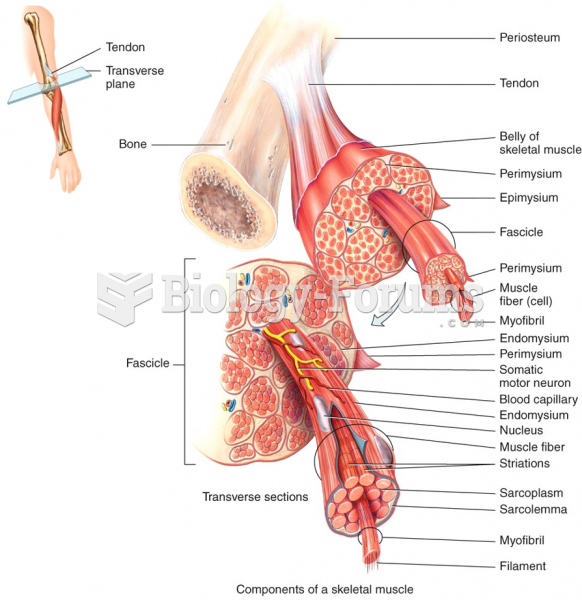Answer to Question 1
ANS: B
Common signs and symptoms of hyperthyroidism include muscle weakness, nervousness, insomnia, tachycardia, increased sweating, moist skin, intolerance to heat, exophthalmos, weight loss, loose stools, hypertension, and hyperreflexia. In the elderly, the presenting symptom may be atrial fibrillation. Even though the physical examination may increase suspicions, measuring the thyroid hormones T3, free T4 and TSH confirms the diagnosis. The T3 and T4 levels are above normal, and the TSH level is below normal, sometimes to the point at which it is barely measurable.
Answer to Question 2
ANS: A
Cushing's disease is caused by excess cortisol and corticosteroid hormones, either endogenous or exogenous. Endogenous causes of cortisol hypersecretion include pituitary adenomas; other malignancies, such as small cell lung cancer; and adrenal tumors. Exogenous causes are related to the administration of steroids for the management of other chronic diseases. A thorough medical history will alert the practitioner to chronic diseases or medications that may be causing or contributing to the cushingoid signs and symptoms. Although weakness can be profound because of the muscle wasting that occurs, it is generally not the first symptom that will bring the patient to the office. For women, it may be oligomenorrhea or amenorrhea and hirsutism, and for men, impotence. Patients develop a moon face and buffalo hump with central obesity and thin extremities. Hypertension and osteoporosis develop over time. Purple striae around the thighs, breasts, and abdomen are characteristic of Cushing's; they are prone to easy bruisability, acne, and skin infections with poor wound healing. Patients complain of excessive thirst and polyuria owing to glucose intolerance, and they are prone to renal calculi. Changes in mental health are common and range from mood swings to psychosis.






